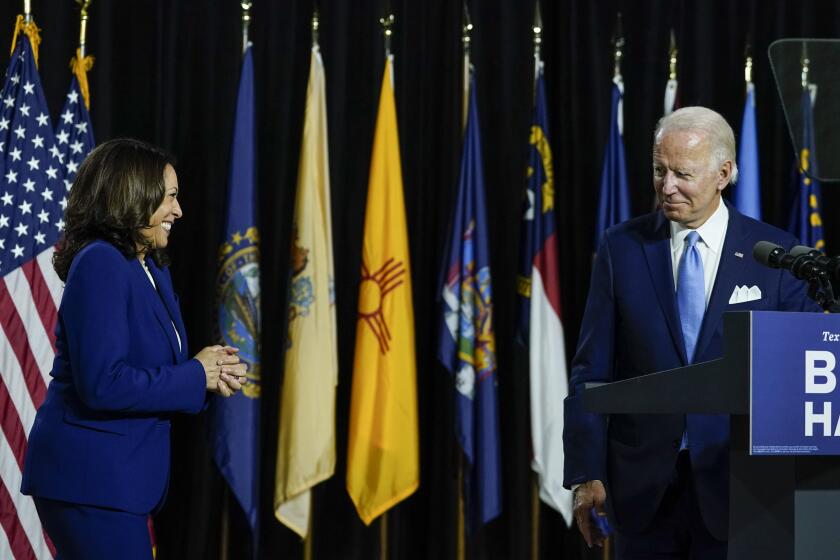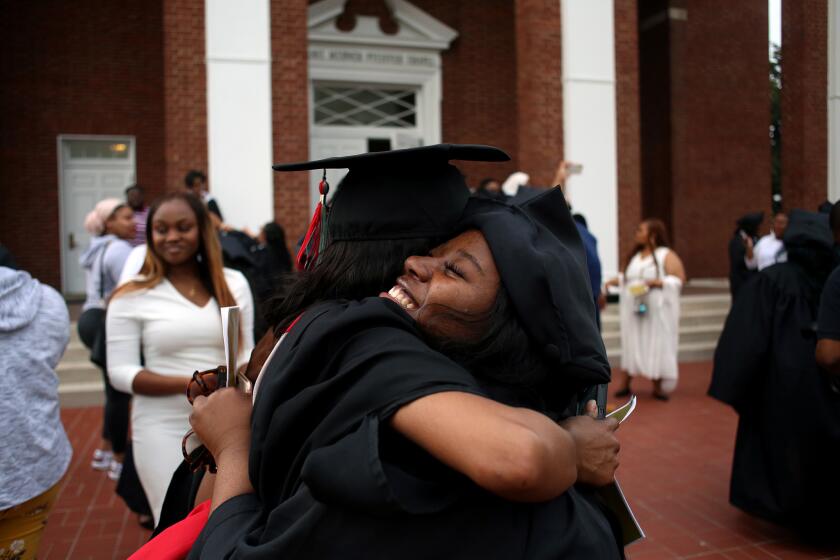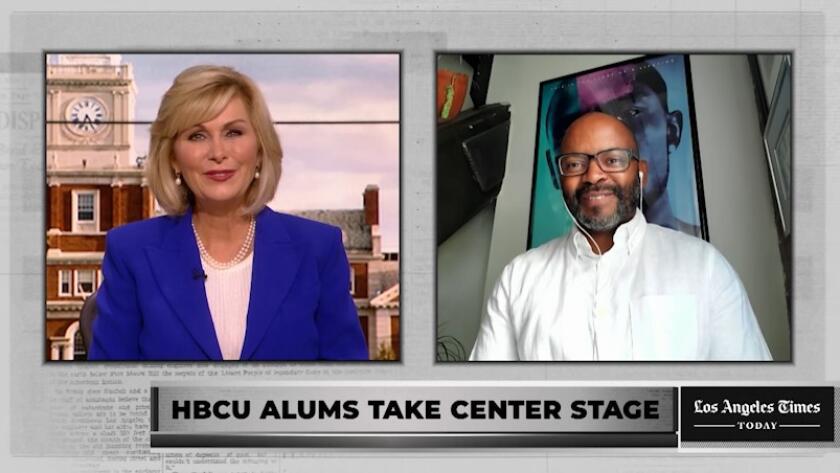Kamala Harris is ‘family.’ Historic black colleges and sororities celebrate her vice presidential run
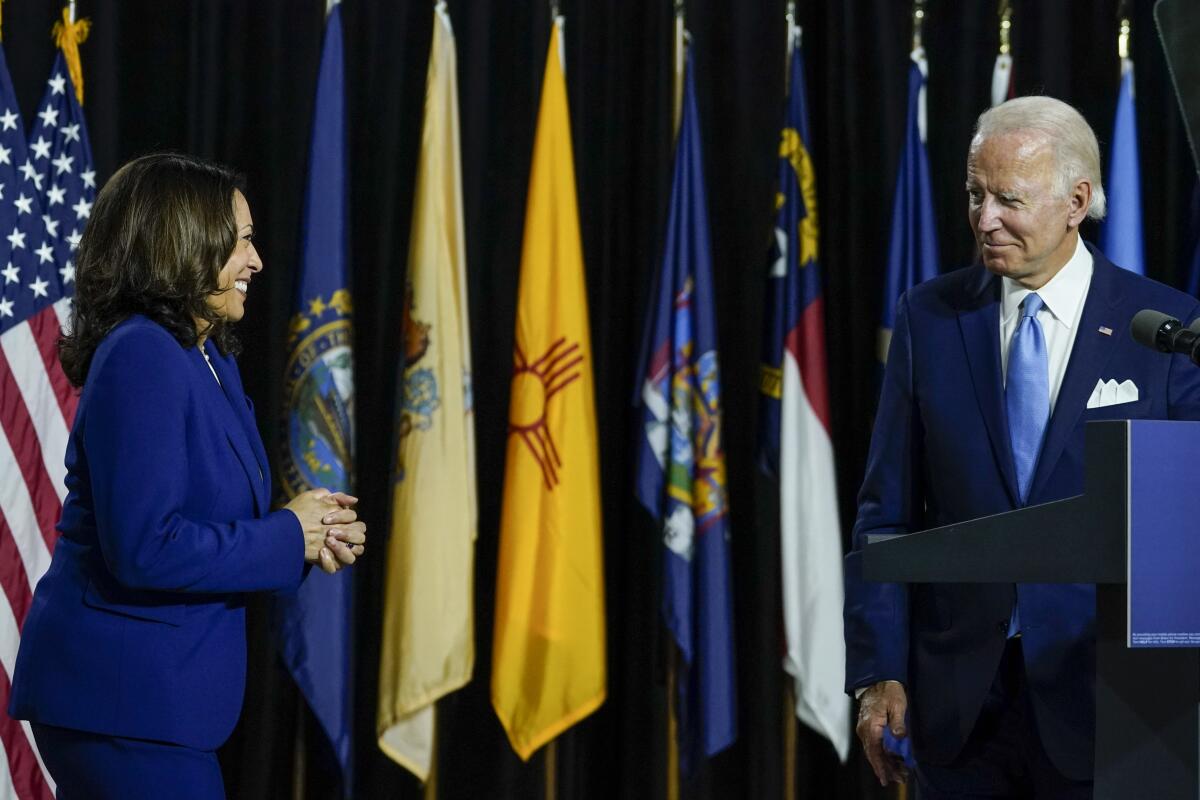
- Share via
When Joe Biden announced Sen. Kamala Harris would be his running mate, alumni from the nation’s historically Black colleges and universities and members of Black sororities and fraternities rejoiced.
Harris is one of their own, a Howard University graduate who joined the Alpha Kappa Alpha sorority when she was a student on the HBCU’s campus in Washington, D.C.
Now the 55-year-old Brentwood resident is poised to become the first Black woman and first Indian American vice president in U.S. history.
“It’s a galvanizing moment, a solidarity moment for HBCUs and African American Greek organizations,” said Tennessee State University President Glenda Glover. “There’s a spirit of excitement in the air.”
Glover’s an “AKA” herself and serves as president of the 300,000-member AKA International organization.
She says Harris’ place on the Democratic ticket represents the fulfillment of the mission of Black institutions of higher learning, some of which were founded before the Civil War when Black people were banned from enrolling at many white schools. The HBCU culture of “Black excellence,” in academics and in life — and in the organizations and clubs that contribute much to the vibrancy of their campuses — is now on full display.
“These organizations were all at the forefront of providing an outlet for African Americans to excel,” Glover says of AKA and other organizations at HBCUs. “This is what our founders had in mind.”
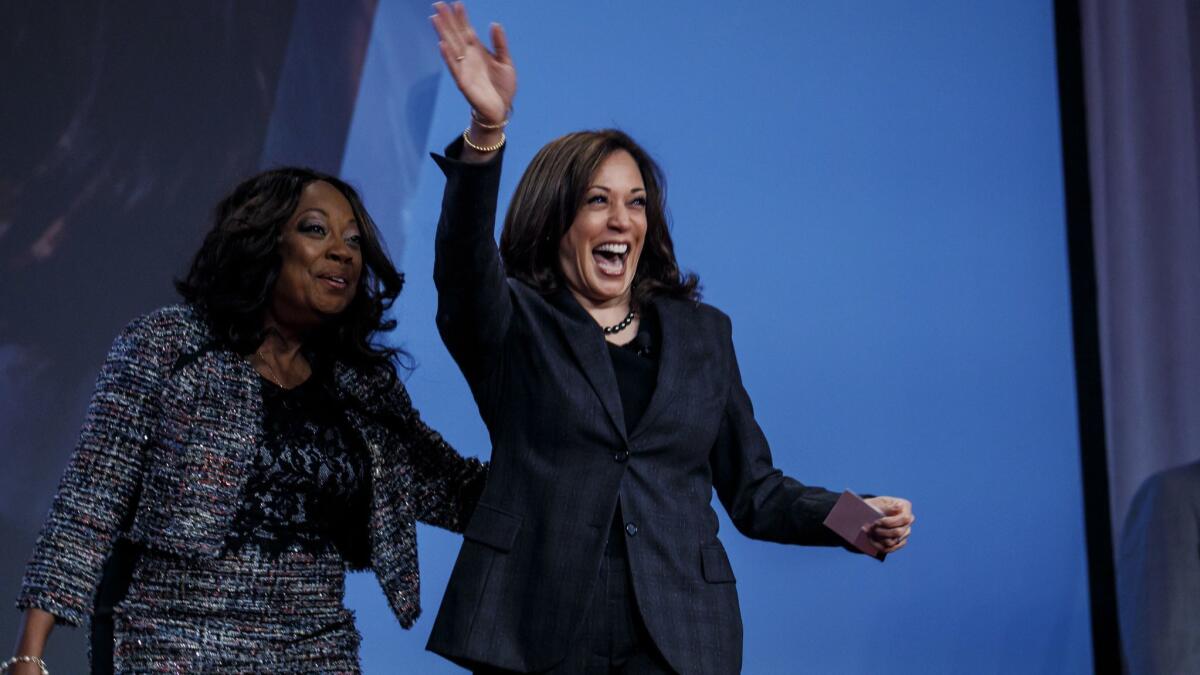
Americans got a taste of the racial pride that radiates across the country’s Black college campuses when Netflix aired Beyonce’s 2018 Coachella performances as part of the concert documentary “Homecoming.” The singer assembled a huge marching band made up of musicians from HBCUs, and much of the show, right down to the Greek letters on her outfits, celebrated Black campus life.
The war on drugs had erupted, apartheid was raging, Jesse Jackson would soon make the campus a staging ground for his inaugural presidential bid.
That communal pride was much in evidence on social media as the news about Harris spread.
“Howard grads are about to be insufferable,” former South Carolina lawmaker and TV political analyst Bakari Sellers tweeted after Tuesday’s announcement. Sellers did his undergraduate studies at Morehouse College, an HBCU in Atlanta. His post had garnered more than 35,000 likes by Thursday.
He may have been half-joking, but his celebratory tweet shed light on the friendly rivalries that Black graduates of HBCUs and members of Black fraternities and sororities enjoy even as they pursue the common cause of racial justice.
It was an especially happy day for AKAs and other members of the “Divine 9,” which are considered the most prestigious of the Greek letter organizations found on HBCU campuses.
Joe Biden held his first event with his Democratic running mate, Kamala Harris, in Wilmington, Delaware, on Wednesday.
Walter M. Kimbrough, a member of the Alpha Phi Alpha fraternity and president of Dillard University in New Orleans, said he visited with Harris in early March at an HBCU event in Washington, D.C.
“She teased me about Dillard, and you know I had go right back at her about Howard,” Kimbrough said.
But Kimbrough agrees with Glover that the Harris announcement represents a milestone everyone affiliated with these organizations and HBCUs should take to heart.
“It’s like that viral Issa Rae comment at the Emmys in 2017: ‘I’m rooting for everybody Black.’ Really, the HBCU community is celebrating this moment.”
“She is a part of the family, and we support her,” he said of Harris.
Kimbrough said seeing other HBCU graduates — Atlanta Mayor Keisha Lance Bottoms, former Georgia lawmaker Stacey Abrams — considered as possible running mates to Biden shows the collective influence of these institutions.
And many Black women say the Harris pick reflects their own influence as a key segment of a Democratic base that had spent months nudging the former vice president to choose a woman of color.
“This is what we wanted, and now we’re watching this historic moment happen,” said Ashley Daniel, a Howard graduate student who joined the Delta Sigma Theta sorority as a student at another HBCU, Bowie State University in Maryland, in 2008. “It really is a testament to the power of organizing that Black women have.”
The spotlight the Harris announcement has placed on HBCUs feels like a long time in coming for some. In recent years, a number of the schools have struggled financially. Both Democrats and President Trump have committed to providing aid to help stave off future budget cuts.
“For years, HBCUs have faced questions of if we’re ‘relevant.’ It was nonsense then, it’s nonsense now,” Howard University Executive Vice President Tashni-Ann Dubroy said. “Now we have a VP candidate who is an HBCU graduate.”
HBCUs and their Black Greek organizations have long made up for what America has so often denied aspiring Black Americans: A sense of belonging, peace of mind in a setting where you don’t always have to explain your identity, a place to hold your head high among peers whose dream of racial uplift is as big as your own.
“Once you leave these campuses, you know who you are,” said Pearl Dowe, a professor at Emory University in Atlanta who earned her PhD in political science at Howard and is a member of Delta Sigma Theta sorority. “It gives you a foundation to stand on — it grounds you in a way and prepares you for those times when as an African American your abilities are questioned, when your credibility is challenged.”
Covering Kamala Harris
That sort of college experience sticks with you, says Keesha Middlemass, an associate political science professor at Howard.
“I became an AKA in the spring of 1990; I will be an AKA for life, and I will be buried with my AKA pin,” Middlemass said. She says she decided to teach at Howard with the explicit goal of helping to continue the school’s tradition of promoting Black progress.
Harris, whose mother was Indian and whose father is Jamaican, has frequently spoken of how her time at Howard and her AKA membership fortified her as well.
“Being a graduate of @HowardU and a proud member of @akasorority1908 changed my life,” she tweeted last year during her own bid for the Democratic presidential nomination.
With P.V. Gopalan, an upright civil servant and doting patriarch, Kamala Harris forged one of the defining relationships of her life.
For many people with ties to HBCUs and their campus organizations, her rise to prominence — as a prosecutor, California attorney general, U.S. senator, presidential candidate and now as Biden’s running mate — has changed them in turn. It’s widened their sense of what’s possible in a nation that has never fully atoned for its racism against Black people and other people of color.
Dubroy, who served as president of Shaw University, an HBCU in North Carolina, before joining Howard in 2017, remembers how thrilled her 11-year-old daughter looked when she heard the news about Harris.
“Her face lit up,” Dubroy said. “She then said, ‘We can all be president one day.’”
“We still face daily inequities,” Dubroy said. “But with Kamala in this leadership role, we see hope. We have optimism.”
- Share via
Watch L.A. Times Today at 7 p.m. on Spectrum News 1 on Channel 1 or live stream on the Spectrum News App. Palos Verdes Peninsula and Orange County viewers can watch on Cox Systems on channel 99.
More to Read
Get the L.A. Times Politics newsletter
Deeply reported insights into legislation, politics and policy from Sacramento, Washington and beyond. In your inbox twice per week.
You may occasionally receive promotional content from the Los Angeles Times.
